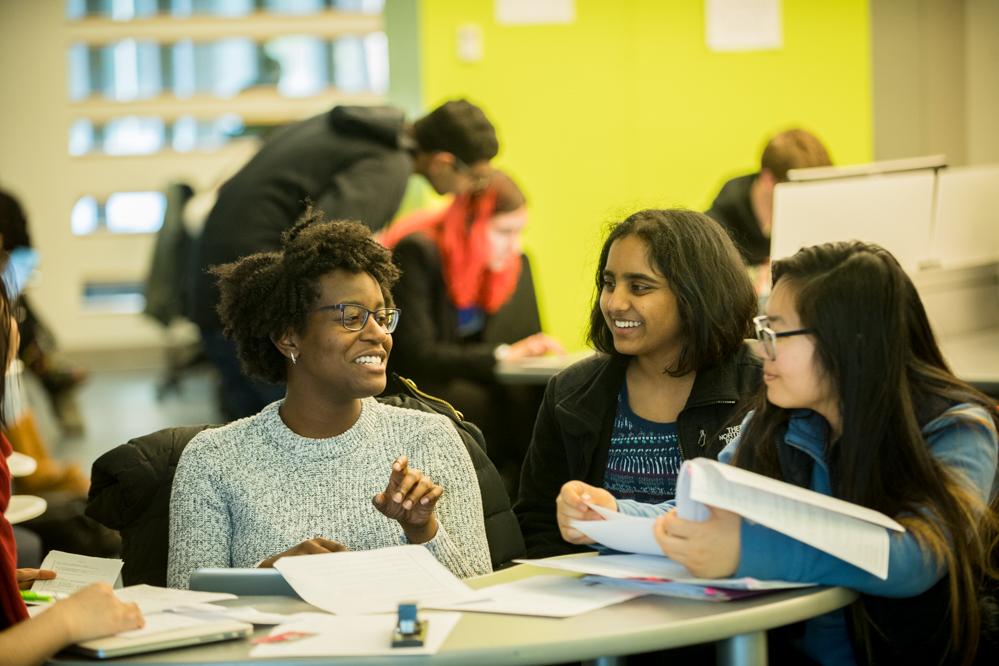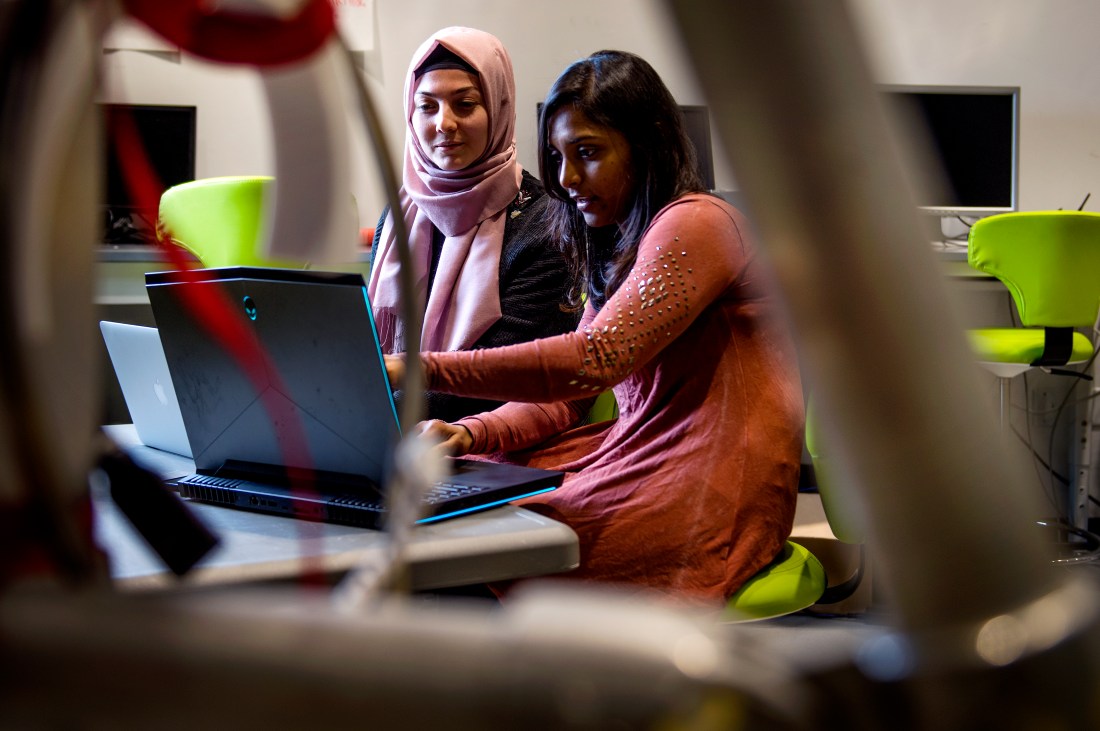Northeastern University receives funding to aid in closing diversity gap in tech

Northeastern University has received funding from Pivotal Ventures, the executive office of Melinda Gates, to expand its Align program. Align focuses on closing the diversity gap in tech by giving students from any academic background the ability to earn a master’s degree in computer science. The funding will pay for the first semester of study for women and underrepresented minority students—a critical step toward ensuring degree completion.
A primary obstacle to diversity in tech is that women and minorities traditionally have self-selected out of trying computer science as undergraduates. Providing first-semester scholarships removes the economic barrier for diverse students to try computer science.
“First semester scholarships are an incredibly effective way to recruit people who might not otherwise try computer science,” said Carla Brodley, dean of Northeastern’s College of Computer and Information Science. “For students who choose to go on to the second semester, the completion rate is 95 percent to date.”
By 2020, the Bureau of Labor Statistics estimates there will be more than 1 million job openings that won’t be filled by the current pipeline of students.
First semester scholarships are an incredibly effective way to recruit people who might not otherwise try computer science.
Carla Brodley, Dean, College of Computer and Information Science
“There is a staggering lack of women and underrepresented minorities pursuing jobs in technology fields,” Brodley added.
Developed in part with funding from the National Science Foundation, the Align program has a unique structure in which students start with a bridge of computer science courses designed to prepare them for graduate-level study. Students also complete a paid professional experience that lasts six to eight months and is integrated into their classroom studies. Northeastern has a global network of more than 3,000 employer partners, including more than 500 technology companies.
“We’ve proven that the model makes sense, that it works, and now we’re ready to scale it to solve a workforce development problem—but more importantly, a problem of social equity and inclusion,” Brodley said.
Align is more similar to a medical or law degree than a traditional CS master’s program—it is designed for people who have completed an undergraduate degree in any field.
Northeastern plans to graduate 1,000 students annually from the Align program by 2022. Half of those graduates will be women and a quarter will be underrepresented minority students.

The Align program maintains a diverse group of employer partners. Providence St. Joseph Health, a not-for-profit health system operating 50 hospitals and more than 800 clinics in the Western United States; Dell Inc., part of Dell Technologies, provides customers a broad, innovative technology portfolio; Clean Harbors, North America’s leading provider of environmental, energy, and industrial services; Wayfair, one of the world’s largest online destinations for the home; Worldpay, one of the largest processors of debit and credit card transactions in the world; and Akamai Technologies, the world’s largest and most trusted cloud delivery platform, are also among the companies investing in the Align program in computer science.
“Employers love diversity of thought and the Align M.S. in computer science allows people to combine their previous background with computer science to become technology leaders,” Brodley said. “They also love our experiential learning format, which allows them to see our students in action even before they have finished earning their degrees.”
Graduates of the Align program include a student who studied chemistry as an undergrad, and after earning her M.S. in computer science, now works for a major pharmaceutical company. Another majored in English, completed the program, and was offered a technical writing job at a top technology firm. One woman who studied philosophy before enrolling in the Align M.S. program now works at a nonprofit institute conducting research on artificial intelligence.
The Align program was piloted at Northeastern’s Seattle campus but is now also available for students to enroll at the Boston, Charlotte, and Silicon Valley campuses. The program is designed to be completed in two and a half years by working professionals, since classes are offered in the evenings year-round. Looking ahead, Northeastern plans to scale the program and to encourage other computer science departments and colleges to start such a program of their own.





